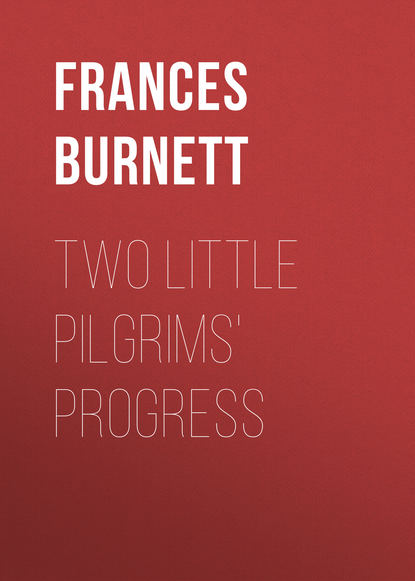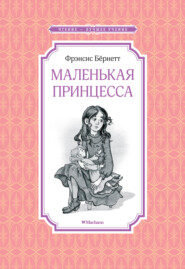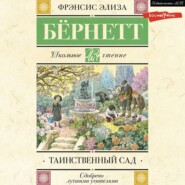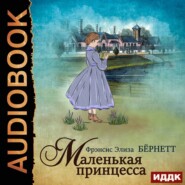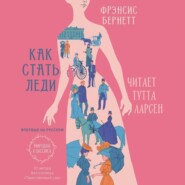По всем вопросам обращайтесь на: info@litportal.ru
(©) 2003-2024.
✖
Two Little Pilgrims' Progress
Настройки чтения
Размер шрифта
Высота строк
Поля
“It’s like making a kind of sacrifice on an altar,” she said.
“You always think queer things about everything, don’t you?” said Robin. “But they’re all right; I don’t think of them myself, but I like them.”
When the eggs were boiled hard enough they carried them to the barn and hid them in the Straw Parlor, near the Treasure. Then they sat and talked, in whispers still, almost trembling with joy.
“Somehow, do you know,” Meg said, “it feels as if we were going to do something more than just go to the Fair. When people in stories go to seek their fortunes, I’m sure they feel like this. Does it give you a kind of creeping in your stomach whenever you think of it, Rob?”
“Yes, it does,” Robin whispered back; “and when it comes into my mind suddenly something gives a queer jump inside me.”
“That’s your heart,” said Meg. “Robin, if anything should stop us, I believe I should drop dead.”
“No, you wouldn’t,” was Rob’s answer, “but it’s better not to let ourselves think about it. And I don’t believe anything as bad as that could happen. We’ve worked so hard, and we have nobody but ourselves, and it can’t do any one any harm – and we don’t want to do any one any harm. No, there must be something that wouldn’t let it be.”
“I believe that too,” said Meg, and this time it was she who clutched at Robin’s hand; but he seemed glad she did, and held as close as she.
And then, after the bluebirds had sung a few times more, there came a night when Meg crept out of her cot after she was sure that the woman in the other bed was sleeping heavily enough. Every one went to bed early, and every one slept through the night in heavy, tired sleep. Too much work was done on the place to allow people to waste time in sleeplessness. Meg knew no one would waken as she crept down stairs to the lower part of the house and softly opened the back door.
Robin was standing outside, with the little leather satchel in his hand. It was a soft, warm night, and the dark blue sky was full of the glitter of stars.
Both he and Meg stood still a moment, and looked up. “I’m glad it’s like this,” Meg said; “it doesn’t seem so lonely. Is your heart thumping, Robin?”
“Yes, rather,” whispered Robin. “I left the letter in a place where Aunt Matilda will be likely to find it some time to-morrow.”
“What did you say?” Meg whispered back.
“What I told you I was going to. There wasn’t much to say. Just told her we had saved our money, and gone away for a few days; and we were all right, and she needn’t worry.”
Everything was very still about them. There was no moon, and, but for the stars, it would have been very dark. As it was, the stillness of night and sleep, and the sombreness of the hour, might have made less strong little creatures feel timid and alone.
“Let us take hold of each other’s hands as we walk along,” said Meg. “It will make us feel nearer, and – and twinner.”
And so, hand in hand, they went out on the road together.
VIII
It was four miles to the dépôt, but they were good walkers. Robin hung the satchel on a stick over his shoulder; they kept in the middle of the road and walked smartly. There were not many trees, but there were a few, occasionally, and it was pleasanter to walk where the way before them was quite clear. And somehow they found themselves still talking in whispers, though there was certainly no one to overhear them.
“Let us talk about Christian,” said Meg. “It will not seem so lonely if we are talking. I wish we could meet Evangelist.”
“If we knew he was Evangelist when we met him,” said Robin. “If we didn’t know him, we should think he was some one who would stop us. And after all, you see, he only showed Christian the shining light, and told him to go to it. And we are farther on than that. We have passed the Wicket Gate.”
“The thing we want,” said Meg, “is the Roll to read as we go on, and find out what we are to do.”
And then they talked of what was before them. They wondered who would be at the little dépôt and if they would be noticed, and of what the ticket-agent would think when Robin bought the tickets.
“Perhaps he won’t notice me at all,” said Rob. “And he does not know me. Somebody might be sending us alone, you know. We are not little children.”
“That’s true,” responded Meg, courageously. “If we were six years old it would be different. But we are twelve!”
It did make it seem less lonely to be talking, and so they did not stop. And there was so much to say.
“Robin,” broke forth Meg once, giving his hand a sudden clutch, “we are on the way – we are going. Soon we shall be in the train and it will be carrying us nearer and nearer. Suppose it was a dream, and we should wake up!”
“It isn’t a dream!” said Rob, stoutly. “It’s real – it’s as real as Aunt Matilda!” He was always more practical-minded than Meg.
“We needn’t philander any more,” Meg said.
“It isn’t philandering to talk about a real thing.”
“Oh, Rob, just think of it – waiting for us under the stars, this very moment – the City Beautiful!”
And then, walking close to each other in the dimness, they told each other how they saw it in imagination, and what its wonders would be to them, and which they would see first, and how they would remember it all their lives afterwards, and have things to talk of and think of. Very few people would see it as they would, but they did not know that. It was not a gigantic enterprise to them, a great scheme fought for and struggled over for the divers reasons poor humanity makes for itself; that it would either make or lose money was not a side of the question that reached them. They only dwelt on the beauty and wonder of it, which made it seem like an enchanted thing.
“I keep thinking of the white palaces, and that it is like a fairy story,” Meg said, “and that it will melt away like those cities travellers sometimes see in the desert. And I wish it wouldn’t. But it will have been real for a while, and everybody will remember it. I am so glad it is beautiful – and white. I am so glad it is white, Robin!”
“And I keep thinking,” said Robin, “of all the people who have made the things to go in it, and how they have worked and invented. There have been some people, perhaps, who have worked months and months making one single thing – just as we have worked to go to see it. And perhaps, at first they were afraid they couldn’t do it, and they set their minds to it as we did, and tried and tried, and then did it at last. I like to think of those men and women, Meg, because, when the City has melted away, the things won’t melt. They will last after the people. And we are people too. I’m a man, and you are a woman, you know, though we are only twelve, and it gives me a strong feeling to think of those others.”
“It makes you think that perhaps men and women can do anything if they set their minds to it,” said Meg, quite solemnly. “Oh, I do like that!”
“I like it better than anything else in the world,” said Rob. “Stop a minute, Meg. Come here in the shade.”
He said the last words quickly, and pulled her to the roadside, where a big tree grew which threw a deep shadow. He stood listening.
“It’s wheels!” he whispered. “There is a buggy coming. We mustn’t let any one see us.”
It was a buggy, they could tell that by the lightness of the wheels, and it was coming rapidly. They could hear voices – men’s voices – and they drew back and stood very close to each other.
“Do you think they have found out, and sent some one after us?” whispered Meg, breathlessly.
“No,” answered Robin, though his heart beat like a triphammer. “No, no, no.”
The wheels drew nearer, and they heard one of the men speaking.
“Chicago by sunrise,” he was saying, “and what I don’t see of it won’t be worth seeing.”
The next minute the fast-trotting horse spun swiftly down the road, and carried the voices out of hearing. Meg and Robin drew twin sighs of relief. Robin spoke first.
“It is some one who is going to the Fair,” he said.
“Perhaps we shall see him in the train,” said Meg.
“I dare say we shall,” said Robin. “It was nobody who knows us. I didn’t know his voice. Meg, let’s take hands again, and walk quickly; we might lose the train.”
They did not talk much more, but walked briskly. They had done a good day’s work before they set out, and were rather tired, but they did not lag on that account. Sometimes Meg took a turn at carrying the satchel, so that Robin might rest his arm. It was not heavy, and she was as strong for a girl as he was for a boy.
At last they reached the dépôt. There were a number of people waiting on the platform to catch the train to Chicago, and there were several vehicles outside. They passed one which was a buggy, and Meg gave Robin a nudge with her elbow.
“Perhaps that belongs to our man,” she said.





